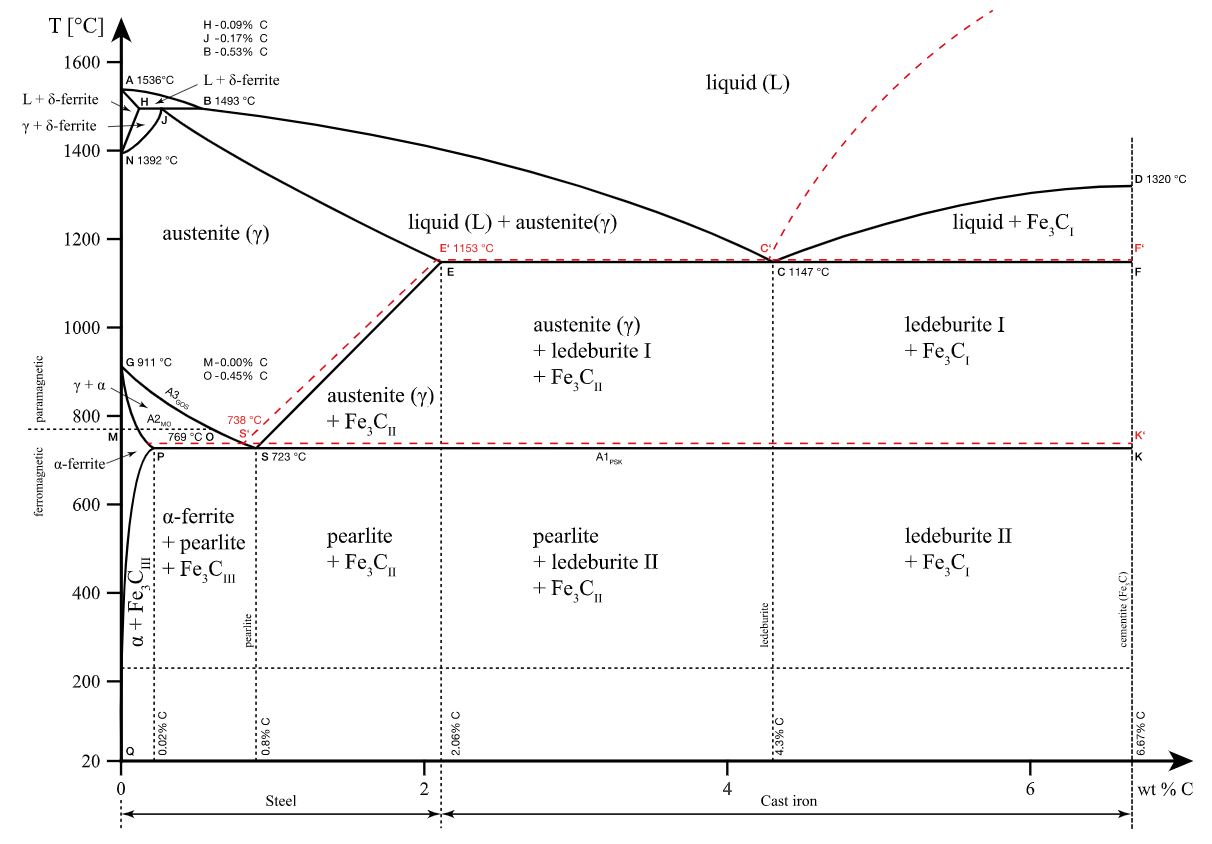martensitic stainless steel, a chromium-iron alloy containing 10.5 to 17% chromium and controlled amounts of carbon. this type is extremely strong and tough, but not as corrosion resistant as the other two classes. martensitic grades are magnetic in both the annealed and hardened (heat treated) condition. highly machineable and hardenable by heat treatment this stainless steel class contains types 410, 416, 420, 420f, 431, 440a, 440b and 440c.
the applications of martensitic stainless steel
martensitic stainless steels have high thermal conductivity, which makes them suitable for applications that require good heat distribution, such as heat exchangers. furthermore, their low coefficient of thermal expansion (cte) makes them more likely to retain their shape at high temperatures. they are also used in aerospace applications, where a high degree of stiffness is required, thanks to their high young’s modulus. below are some applications for some of the common grades of martensitic steels.
type 410
basic martensitic grade, containing the lowest alloy content of the three basic stainless steels (304, 430, and 410). low cost, general purpose, heat treatable stainless steel. used widely where corrosion is not severe (air, water, some chemicals, and food acids. typical applications include highly stressed parts needing the combination of strength and corrosion resistance such as fasteners.
type 410s
contains lower carbon than type 410, offers improved weldability but lower hardenability. type 410s is a general purpose corrosion and heat resisting chromium steel recommended for corrosion resisting applications.
type 414
has nickel added (2%) for improved corrosion resistance. typical applications include springs and cutlery.
type 416
contains added phosphorus and sulphur for improved machinability. typical applications include screw machine parts.
type 420
contains increased carbon to improve mechanical properties. typical applications include surgical instruments.
type 431
contains increased chromium for greater corrosion resistance and good mechanical properties. typical applications include high strength parts such as valves and pumps.
type 440
further increases chromium and carbon to improve toughness and corrosion resistance. typical applications include instruments.
properties of selected hardened martensitic stainless steels.
aisi 410 | aisi 420 | aisi 431 | aisi 440a | aisi 440b | aisi 440c | |
yield strength at 20 °c | 540 mpa | 760 mpa | 1070 mpa | 1650 mpa | 1860 mpa | 1900 mpa |
poisson ratio at 20 °c | 0.3 | 0.3 | 0.3 | 0.3 | 0.3 | 0.3 |
elong. at 20 °c | 16 % | 12 % | 15 % | 5 % | 3 % | 2 % |
tensile str. at 20 °c | 740 mpa | 980 mpa | 1390 mpa | 1790 mpa | 1930 mpa | 1970 mpa |
elec. cond. at 20 °c | 1.68*107 s/m | 1.68*107 s/m | 1.45*107 s/m | 1.57*107 s/m | 1.28*107 s/m | 1.28*107 s/m |
cte at 20 °c | 1.1*10-5 1/k | 1*10-5 1/k | 1.2*10-5 1/k | 1*10-5 1/k | 1*10-5 1/k | 1*10-5 1/k |
thermal cond. at 20 °c | 30 w/(m·k) | 30 w/(m·k) | 25 w/(m·k) | 30 w/(m·k) | 15 w/(m·k) | 15 w/(m·k) |
melting point at 20 °c | 1480 °c | 1450 °c | 1450 °c | 1370 °c | 1370 °c | 1370 °c |
specific heat capacity at 20 °c | 460 j/(kg·k) | 460 j/(kg·k) | 460 j/(kg·k) | 460 j/(kg·k) | 430 j/(kg·k) | 430 j/(kg·k) |
heat treatment of martensitic stainless steel
the heat treatment of martensitic stainless steels undergoes three processes, namely austenitizing, quenching and tempering.

looking for martensitic stainless steel products?
if you’re reading this article, it might be because you’re on the search for stainless steel products. if so, you’re in the right place. bestar steel is one of the world’s premier providers of stainless steel pipes, bars, plates, fittings, and more.
whether you’re in need of martensitic stainless steels, like 410 or 420 or another class of steel, we can accommodate you. our team looks forward to serving you.
